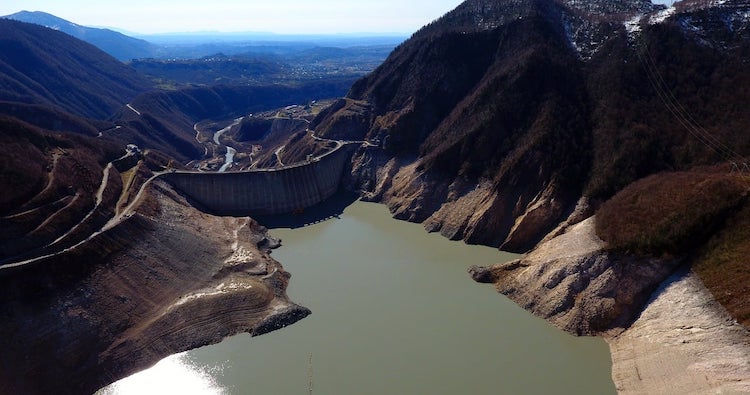Renovated Enguri HPP to resume generating electricity in early May

As a result of the renovation of the HPP diversion tunnel, water losses will be reduced by 30% -35%, which means an additional 100 million kWh of electricity generation per year. Photo: Georgian State Electrosystem.
The renovation of the Enguri hydro power plant (HPP), the largest electricity producer in Georgia that also supplies the country’s Russian-occupied region of Abkhazia, is coming to an end and is expected to start producing electricity in early May of this year, announces Georgian Prime Minister Irakli Garibashvili.
The renovation of the Enguri HPP started in January. Such large-scale, complex works have not been carried out for more than 20 years. The total cost of the project is €42 million of which we received €7 million from the European Commission as a grant and the rest is a loan from the European Bank from Reconstruction and Development", said Garibashvili.
He said that the Enguri HPP plays a 'very important role in our country's energy independence and safety', as 40% of the country’s power comes from this plant.
All five generators of the Enguri HPP were shut down on January 20, 2021 for necessary and urgent work in the drainage tunnel, which is used to allow the water from the reservoir to enter the turbines. Some sections of the tunnel were damaged and large volumes of water were leaking.
 The amount of electricity losses resulting from the leaks in the tunnel reached up to 250 million kilowatt-hours per year or one-tenth of all electricity consumed by Abkhazia per year. Photo: PM's press office.
The amount of electricity losses resulting from the leaks in the tunnel reached up to 250 million kilowatt-hours per year or one-tenth of all electricity consumed by Abkhazia per year. Photo: PM's press office.
In order to begin the repairs of the tunnel, it was necessary to empty it completely first, which is why the HPP had to be shut down.
The amount of electricity losses resulting from the leaks in the tunnel reached up to 250 million kilowatt-hours per year or one-tenth of all electricity consumed by Abkhazia per year.
As a result of the renovation of the HPP diversion tunnel, water losses will be reduced by 30% -35%, which means an additional 100 million kWh of electricity generation per year.
 Tweet
Tweet  Share
Share